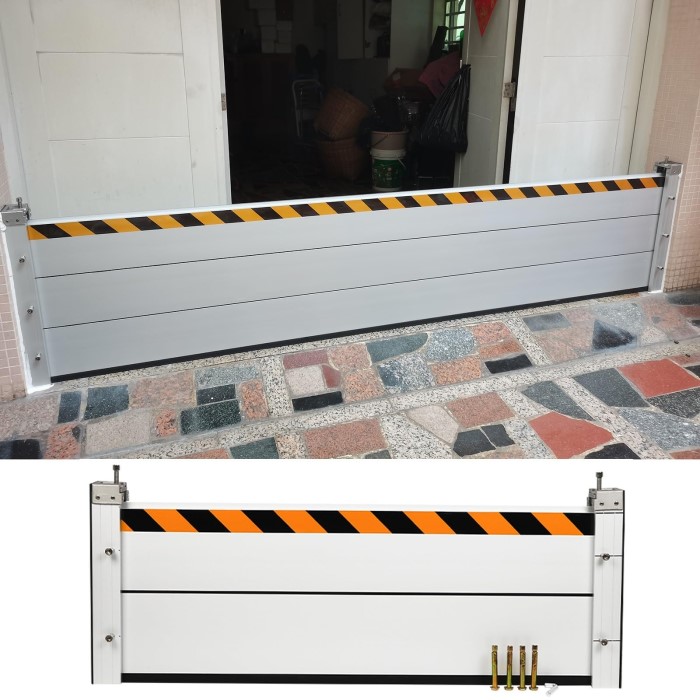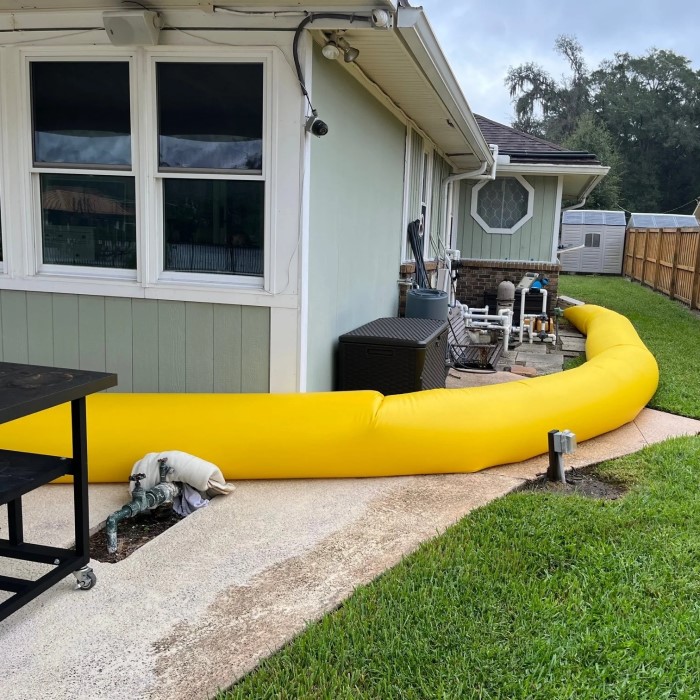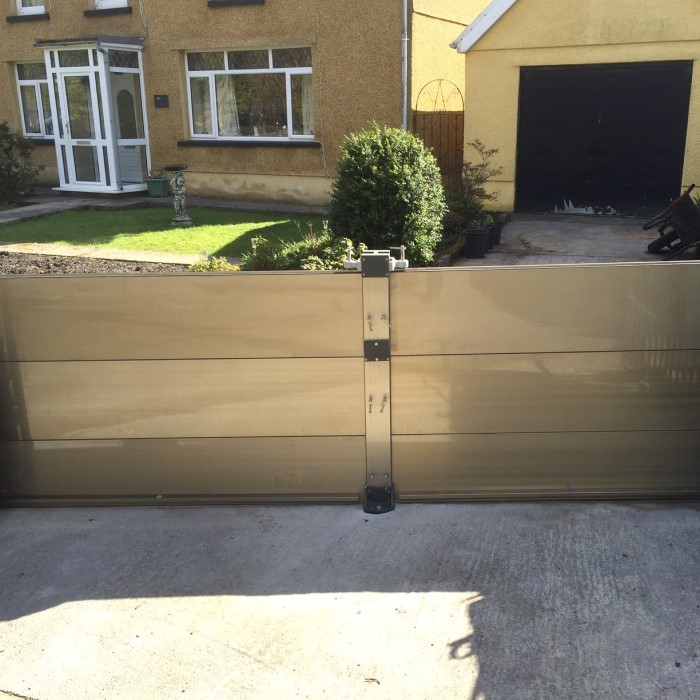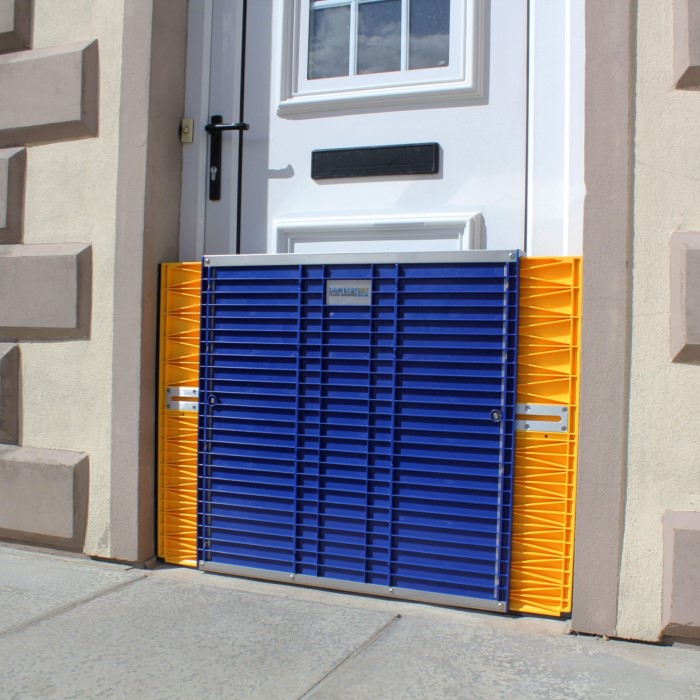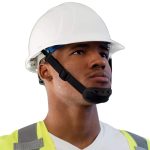As climate change continues to raise sea levels and increase the frequency of severe weather events, homeowners in flood-prone areas need to prioritize their safety. One vital component of flood preparedness is the residential flood barrier. These barriers can significantly minimize the risk and damage posed by flooding, especially in regions prone to typhoons. In this comprehensive guide, we’ll explore effective residential flood barrier solutions and tips for protecting your home from potential flood hazards.
Typhoon Rasaga, a huge and powerful storm, is currently headed toward southern China after lashing the Philippines with destructive winds and torrential rain. The impact of Rasaga has put the region’s megacities on high alert, resulting in canceled flights and disruptions to schools and businesses. With sustained winds exceeding 165 mph (267 kph), Rasaga stands as the strongest storm on Earth this year, resembling the conditions of a Category 5 hurricane.
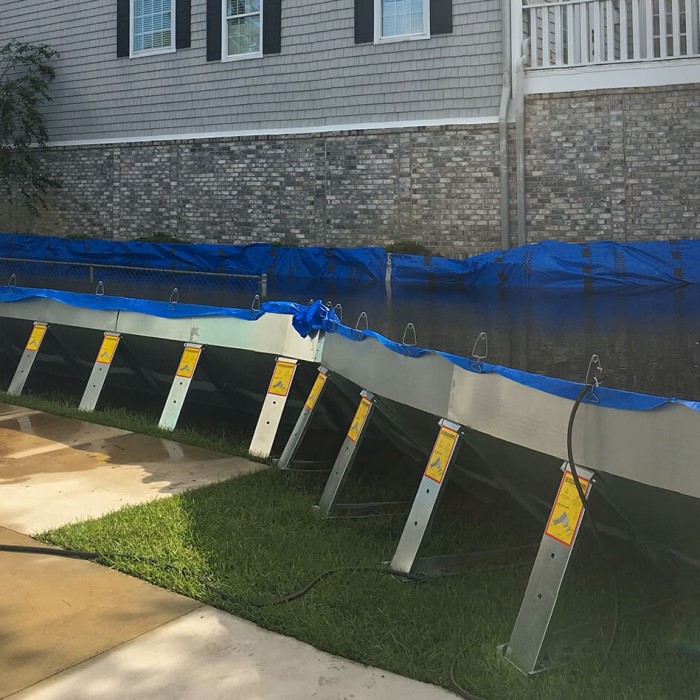
In the face of such catastrophic natural events, the importance of effective flood measures cannot be overstated. Residential flood barriers serve as a crucial line of defense against the potential inundation caused by severe storms like Typhoon Rasaga. These barriers can help protect homes from extensive water damage by preventing floodwaters from breaching entry points and critical areas of residence. As communities assess the damage inflicted by Rasaga, the value of investing in residential flood barriers becomes increasingly clear to safeguard against future storms and ensure the safety of families living in flood-prone zones.
Understanding Residential Flood Barriers
Residential flood barriers are specially designed structures or devices aimed at preventing water from entering homes during floods. They serve as a first line of defense against rising water levels, particularly during extreme weather events like typhoons. Here’s why flood barriers are essential:
- Types of Flood Barriers: Residential flood barriers come in various types, including temporary barriers, permanent walls, and inflatable barriers. Each type has its unique benefits and applications.
- Easy Installation: Many modern residential flood barriers are designed for easy installation. Homeowners can quickly set them up when a storm approaches, providing prompt protection for their property.
- Cost-Effective Protection: Investing in a residential flood barrier can save homeowners thousands of dollars in potential repairs. Flood-related damages can amount to significant financial losses, making the initial investment worthwhile.
- Versatility: Flood barriers can be used in conjunction with other flood protection measures, such as drainage systems and sump pumps, for comprehensive flood defense.
Key Features
When selecting a residential flood barrier, several key features should be considered:
- Height and Thickness: The height of the barrier should match the expected flood levels in your area. Thicker barriers generally provide better protection against high flow rates.
- Material Quality: Choose barriers made from durable materials, such as reinforced plastic, aluminum, or steel. High-quality materials can withstand extreme weather conditions and provide long-lasting protection.
- Easy Operation: Consider barriers that can be easily deployed and removed. Simple designs facilitate quick responses during emergencies, which is critical in a typhoon-prone area.
- Portability: If you require a temporary solution, look for lightweight and portable barriers that can be stored easily when not in use.
- Visual Appeal: Some barriers come with customizable aesthetics, allowing homeowners to maintain their property’s visual appeal while ensuring safety.
Installing Residential Flood Barriers
Installing a residential flood barrier requires careful planning and execution. Here’s how to effectively install your flood barrier for maximum protection:
- Assess Your Property: Begin by assessing the flood risk in your area. Identify areas around your home that are susceptible to water inundation.
- Choose the Right Location: Select strategic locations for your flood barriers, such as doorways, windows, and garages. Ensure that barriers will block potential water entry points effectively.
- Follow Manufacturer Instructions: Always refer to the manufacturer’s instructions for installation. They provide crucial information on securing the barrier firmly and effectively.
- Test the Barriers: Before a storm hits, conduct tests to ensure that the barriers are securely in place and functioning as intended. This step can help identify any potential issues that need addressing.
Preparing for Typhoons: Additional Protective Measures
In addition to using residential flood barriers, homeowners should adopt additional protective measures when preparing for typhoons:
Emergency Kit
- Water: Store at least one gallon of water per person per day for at least three days.
- Non-Perishable Food: Stock up on canned goods, energy bars, dried fruits, nuts, and other non-perishable food items that can last for extended periods.
- Can Opener: Ensure you have a manual can opener for your canned food supplies.
- Flashlight: Have flashlights available, along with extra batteries.
- First Aid Kit: Include essential medical supplies, such as bandages, antiseptics, prescription medications, and any necessary medical devices.
- Whistle: A whistle can be used to signal for help if needed.
Hygiene and Sanitation Supplies
- Personal Hygiene Products: Stock up on soap, hand sanitizer, toilet paper, feminine hygiene products, and toothbrushes.
- Disinfectant Wipes: Useful for cleaning surfaces in your home before and after the storm.
Tools and Equipment
- Multi-Tool or Swiss Army Knife: Handy for various situations during and after the storm.
- Rope or Duct Tape: Useful for securing items or making temporary repairs.
- Tarps: Can be used to cover broken windows or leaks to prevent water damage.
Communication Equipment
- Portable Battery Charger: Keep a portable charger for your phone handy in case of power outages.
- Battery-Powered or Hand-Crank Radio: A radio will allow you to receive emergency alerts and weather updates if the power goes out.
Emergency Contact Information
- Family Contact List: Keep a list of important phone numbers and contacts, including family, friends, and local emergency services.
- Local Emergency Services: Be aware of your local services that may help during a natural disaster.
Document Protection
- Waterproof Storage: Keep important documents (insurance papers, identification, medical records) in a waterproof container or bag.
Preparing Your Home
- Residential Flood Barriers: Invest in residential flood barriers to protect your home from potential flooding.
- Window Protection: Use plywood or storm shutters to secure windows and prevent breakage from flying debris.
- Clear Gutters and Drains: Ensure that water can flow freely away from your home by clearing gutters and drains of leaves and debris.
Pet Supplies
- Food and Water for Pets: Ensure you have enough supplies for your pets, including food, water, and any medications they may require.
- Leash and Carrier: Have a leash and a carrier ready in case you need to evacuate with your pet.
Evacuation Supplies
- Go-Bag: Prepare a “go-bag” with essentials in case you need to evacuate quickly. Include clothing, cash, and any necessary medications.
- Transportation Plan: Know your evacuation routes and have your vehicle fueled up in case you need to leave.
Community Awareness
- Stay Informed: Regularly check weather updates and alerts from local authorities to stay updated on the storm’s path and intensity.
- Local Shelters: Familiarize yourself with nearby shelters in case you need to evacuate.
Why Do Residential Flood Barriers Work?
Many homeowners wonder about the effectiveness of residential flood barriers. Here are several reasons why these barriers offer robust protection:
- Water Displacement: Barriers displace water away from vulnerable areas of your home, preventing flooding in the first place.
- Physical Barrier: The physical barrier of the flood blockades water, thus stopping it from breaching doors and windows. This proactive measure is critical in minimizing damage during high-flow flood events.
- Flexibility and Adaptability: As flood risks vary with weather patterns, residential flood barriers can be adjusted to meet changing needs, providing long-term protection.
FAQs
Do residential flood barriers work?
Yes, residential flood barriers have proven effective in preventing water from entering homes during floods. Proper installation and timely deployment enhance their effectiveness.
What are the best flood barriers for homes?
The best flood barriers are those that suit your specific needs based on local flood risks. Look for features like height, material quality, and ease of use when choosing.
What are the flood barriers called?
Flood barriers are commonly known as flood gates, flood walls, or simply flood barriers. They can vary in design but serve the same essential purpose.
What is the most effective flood defense?
The most effective flood defense combines multiple strategies, including residential flood barriers, proper drainage systems, and ongoing maintenance practices to mitigate risks.
Conclusion
In conclusion, implementing residential flood barriers is essential for homeowners in typhoon flood-prone areas. These barriers provide a dependable and proactive defense against rising water levels, protecting your property from potential damage. Additionally, layering your flood preparedness strategies with regular maintenance, supportive drainage systems, and emergency planning can significantly enhance your home’s resilience.
Taking these precautionary measures will not only safeguard your property but will also provide peace of mind during storm season. By investing in effective residential flood barriers and understanding how to implement them properly, you can protect your home and family from the dangers of flooding during extreme weather events.
